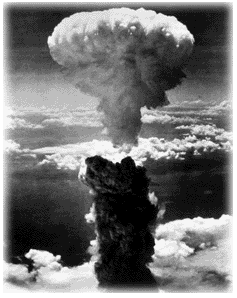The Treaty for the Non-Proliferation of Nuclear Weapons, better known as the Nuclear Non-Proliferation Treaty or NPT, was signed on July 1, 1968, by the United States, Soviet Union, United Kingdom, and 59 other countries. It came into force on March 1, 1970. The treaty defined two categories of nations: Nuclear nations were those who had already tested the atomic bomb and non-nuclear nations were all others. Non-nuclear nations that sign the treaty are obligated to open their nuclear facilities to inspection by the International Atomic Energy Agency and to agree to safeguards that will guarantee that nuclear technology and materials are not diverted to military uses. The nuclear nations agree not to assist non-nuclear nations in the development of nuclear weapons.
China and France, the two remaining nations designated as nuclear nations by the NPT, finally signed it in 1992. When Cuba agreed to join the NPT in 2002, it reduced the number of non-signatory members of the United Nations to three: India, Pakistan, and Israel. India and Pakistan have tested nuclear weapons. Israel is generally assumed to possess them.
 The original treaty provided for a conference to be held after 25 years to determine its future. A conference of more than 170 nations was held in New York in 1995 for that purpose. It decided that the treaty should be extended indefinitely.
The treaty did not contemplate the situation under which one of the nuclear nations would split up. When the Soviet Union disassembled, four of its component states possessed nuclear weapons within their territories. By 1996, Belarus, Ukraine, and Kazakhstan had transferred to Russia all of the nuclear weapons within their boundaries and had joined the NPT as non-nuclear nations. Russia has taken the place of the Soviet Union as a declared nuclear nation.
While South Africa was under the apartheid regime, it developed, but did not acknowledge, nuclear weapons. With the advent of majority rule, the existence of the weapons was revealed and the country dismantled its nuclear program. Its accession to the NPT in 1991 represented the first instance of a country giving up its weapons to qualify as a non-nuclear power. Libya, which signed the NPT in 1975, revealed in December 2003 that it had cheated. At the same time, it agreed to give up the nuclear weapons it had produced and thereafter meet its obligations under the treaty.
North Korea is the only nation thus far to have withdrawn from the NPT, when it decided to deny access to its test facilities by the IAEA inspectors in March 1993. But in June 1993, North Korea re-opened its doors to inspectors and agreed to begin talks with South Korea. By 1994, normalized relations between the United States and North Korea brought about the organization of Korean Peninsula Energy Development Organization (KEDO), which included 10 partner countries and supervision of $4.5 billion costs of the deal for updated nuclear reactor equipment with those countries. As a result of actions by North Korea, additional monitoring systems for clandestine nuclear weapons development were also put in place.
The original treaty provided for a conference to be held after 25 years to determine its future. A conference of more than 170 nations was held in New York in 1995 for that purpose. It decided that the treaty should be extended indefinitely.
The treaty did not contemplate the situation under which one of the nuclear nations would split up. When the Soviet Union disassembled, four of its component states possessed nuclear weapons within their territories. By 1996, Belarus, Ukraine, and Kazakhstan had transferred to Russia all of the nuclear weapons within their boundaries and had joined the NPT as non-nuclear nations. Russia has taken the place of the Soviet Union as a declared nuclear nation.
While South Africa was under the apartheid regime, it developed, but did not acknowledge, nuclear weapons. With the advent of majority rule, the existence of the weapons was revealed and the country dismantled its nuclear program. Its accession to the NPT in 1991 represented the first instance of a country giving up its weapons to qualify as a non-nuclear power. Libya, which signed the NPT in 1975, revealed in December 2003 that it had cheated. At the same time, it agreed to give up the nuclear weapons it had produced and thereafter meet its obligations under the treaty.
North Korea is the only nation thus far to have withdrawn from the NPT, when it decided to deny access to its test facilities by the IAEA inspectors in March 1993. But in June 1993, North Korea re-opened its doors to inspectors and agreed to begin talks with South Korea. By 1994, normalized relations between the United States and North Korea brought about the organization of Korean Peninsula Energy Development Organization (KEDO), which included 10 partner countries and supervision of $4.5 billion costs of the deal for updated nuclear reactor equipment with those countries. As a result of actions by North Korea, additional monitoring systems for clandestine nuclear weapons development were also put in place.